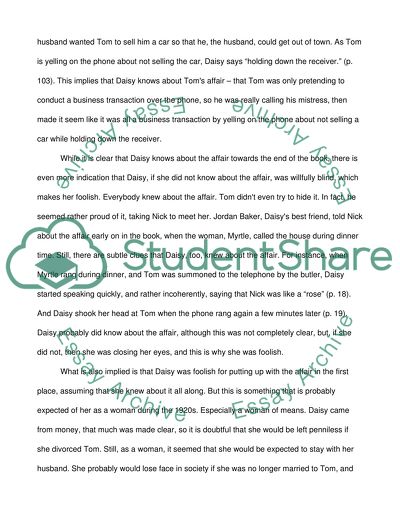Cite this document
(“Foolishness and The Great Gatsby Essay Example | Topics and Well Written Essays - 2000 words”, n.d.)
Retrieved from https://studentshare.org/literature/1469616-foolishness-and-the-great-gatsby
Retrieved from https://studentshare.org/literature/1469616-foolishness-and-the-great-gatsby
(Foolishness and The Great Gatsby Essay Example | Topics and Well Written Essays - 2000 Words)
https://studentshare.org/literature/1469616-foolishness-and-the-great-gatsby.
https://studentshare.org/literature/1469616-foolishness-and-the-great-gatsby.
“Foolishness and The Great Gatsby Essay Example | Topics and Well Written Essays - 2000 Words”, n.d. https://studentshare.org/literature/1469616-foolishness-and-the-great-gatsby.


